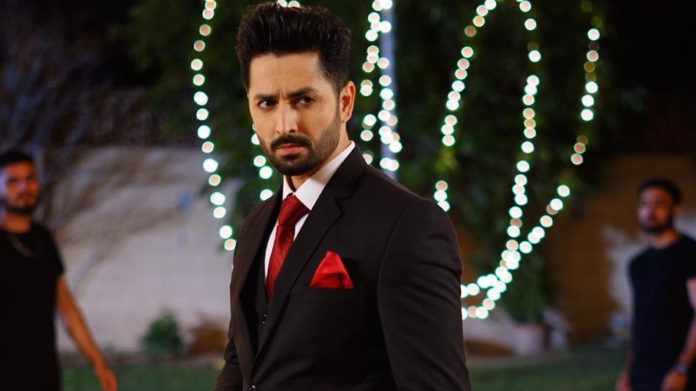There has been a wave of Pakistani dramas with problematic male leads for a few years now. Through romantic dialogues and compelling visuals, they disguise toxic masculinity as love and possessiveness. It is not uncommon for the male leads of many dramas, which are often deemed as “romances”, to display misogynistic mindsets, socio-economic privilege, and aggressive behaviour. Drama serials of this nature only strengthen our society’s misogynistic tendencies by romanticizing men’s evil acts. Therefore, even though there has always been violence against women in society, justification for this violence through dramas is quite concerning.
Yet another drama ‘Kaisi Teri Khudgarzi’, whose first episode was released on May 2022, very elusively depicts a toxic love story once again making the audience question why the content promotes the same prejudiced mindset and lacks fresh content. You’d be hard-pressed not to think of Danish Taimoor when you consider a negative male lead on screen. This time, you can see his toxic obsession in his drama, ‘Kaisi Teri Khudgarzi’. Scripted by Radain Shah and directed by Ahmed Bhatti, featuring Danish Taimoor and Durefishan Saleem in the lead roles, this drama depicts a toxic love story that so far offers nothing but the mind-numbing glorification of abuse, a show of power disguised as love.
It Continues The Legacy of Toxic Masculinity
The plot revolves around Shamsher (Taimoor) and Mehak (Dur e Fishan Saleem). The series portrays a romanticized image of Shamsher as a love-struck spoiled brat who cannot handle rejection. As a result, he feels entitled to receive it from Mehak (Saleem) since his obsession with a woman surpasses all else. It is evident that Shamsher is a thoroughly obsessed young man. Once he has set his sights on Mehak, the discussion has no meaning – the fact that she is engaged, and her father’s opinion cannot be taken into account. Shamsher can intimidate and threaten his way through anything to get what he wants – and that’s Mehak, even abducting her fiancé on the day of their wedding.
In the last decade, the toxic male trope has become increasingly prevalent in our narratives of love stories and romance. And if this isn’t what toxic masculinity is then what is? Living in a country where cases like harassment, domestic abuse, and forced marriages happen now and then, it seems naïve and vague to show the same type of content. To show that males are dominant and cherry on the top, if they have wealth and power, then they can be as much cohesive as they wish to be, and there is nothing an individual can do about it. Promoting these types of characters and this type of charisma is surely not one will be looking forward to watching and consuming into their mind.
Violence And Abuse
From her very first scene in ‘Kaisi Teri Khudgarzi’, Mehek is portrayed as an innocent young girl, who is unable to defend herself. She is ‘weak’ enough to be manipulated. Additionally to this drama, every other script portrays women as insignificant creatures, who are powerless over their actions and circumstances because they are suppressed by the male power hierarchy. And that gives a fair chance to the team to simultaneously glorify violence and abuse in terms of love. For example upon learning that Mehek is alive; Shamsher attacks a rickshaw driver and puts a gun on a college guard, giving the impression that he is a psychopath. His aggressive behaviour towards Mehek is a result of her trying to flee for him. This portrayed that Shamsher had so much power and as a result of his violent and abusive behaviour and the fear of what could be done more; Mehak was obliged to marry him.
The content audience is grasping from here is that if you be like Shamsher, you can get things done. And this is surely what is not needed at this time of the hour. These dramas glorify abuse and harassment, which gives people more leeway to act like Shamsher if they fall in love, or even throughout any matter of their life.
The Justification
What makes Shamsher’s character more problematic is his change in behaviour. In the last episode, the makers show that after he practically hounds this woman to marry him, suddenly he has so much restraint and ‘honour’, that he won’t touch her without her consent. Even though this may seem absurd and vague, the producers and writers of the drama have used this to justify Shamsher’s actions, giving the audience the impression that Shamsher’s obsession with Mehak was not toxicity but undying love for her, and once he had her by his side, he turned into this loving and gentle soul who would cause any trouble to her or her honour.
Conclusion
In the patriarchal society in which we live, men already hold power and women are limited to their roles in society. Harassment, abuse, toxic masculinity, the justification of being cohesive when you have wealth, and the power of manipulation are all these attributes that are made more desirable and glamorized by exploiting the concept of love. There is an urgent need to come up with meaningful content and stop representing the ‘hero’ as some man with wealth, power and everything under his control.




